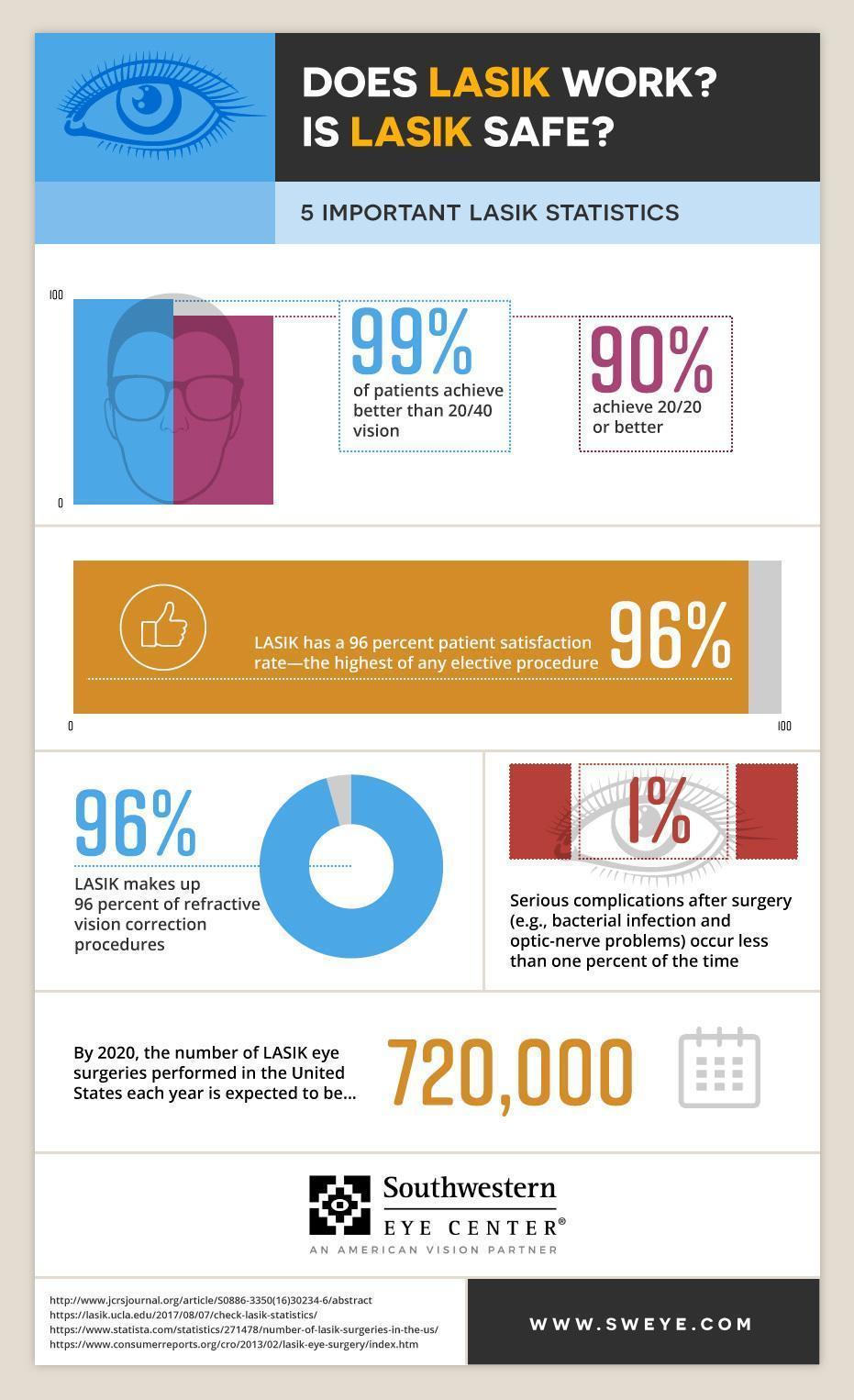If you're pondering SMILE eye surgery, contemplate this: are you prepared to accept potential aesthetic flexibility, or does the thought of any threats make you think twice? Your decision will certainly depend upon a cautious balance of weighing the advantages against the unpredictabilities. It's important to delve much deeper right into the subtleties of SMILE surgical treatment to make an informed option that aligns with your aesthetic objectives.
Comprehending SMILE Eye Surgery
When considering SMILE Eye Surgery, it's important to understand the procedure and its advantages. SMILE, which represents Small Laceration Lenticule Removal, is a minimally intrusive laser eye surgical procedure that deals with typical vision issues like myopia (nearsightedness).
Throughout click here to read , your eye surgeon will use a femtosecond laser to develop a small incision in your cornea. Through this laceration, a tiny disc of tissue called a lenticule is eliminated, reshaping the cornea and correcting your vision.
Among the essential advantages of SMILE Eye Surgical procedure is its quick recuperation time. Numerous clients experience boosted vision within a day or 2 after the procedure, with minimal pain.
In addition, SMILE is recognized for its high success rate in giving long-term vision modification. Unlike LASIK, SMILE doesn't call for the production of a flap in the cornea, minimizing the threat of complications and enabling an extra secure corneal framework post-surgery.
Understanding the treatment and its advantages is crucial when thinking about SMILE Eye Surgical treatment for vision improvement.
Pros and Cons of SMILE
Thinking About SMILE Eye Surgery for vision adjustment comes with numerous advantages and prospective drawbacks.
One of the major pros of SMILE is its minimally intrusive nature, as it includes a small cut and typically leads to fast recuperation times. The treatment is additionally understood for creating marginal pain and dry eye signs post-surgery contrasted to various other vision modification techniques. Furthermore, SMILE has actually been revealed to offer excellent visual outcomes, with numerous individuals attaining 20/20 vision or much better.
On the other hand, a potential disadvantage of SMILE is that it might not appropriate for people with extreme refractive mistakes, as the therapy array is rather restricted compared to LASIK. Another consideration is that the discovering curve for cosmetic surgeons carrying out SMILE can influence the accessibility of skilled suppliers in specific areas.
It is necessary to evaluate these pros and cons meticulously when choosing if SMILE is the ideal choice for your vision improvement requirements.
Identifying Eligibility for SMILE
To identify if you're qualified for SMILE eye surgery, your optometrist will conduct a thorough analysis of your eye wellness and vision needs. Throughout this examination, factors such as the stability of your vision prescription, the density of your cornea, and the total health of your eyes will certainly be evaluated.
Generally, Cataract Surgery Issues for SMILE more than 22 years of ages, have a steady vision prescription for at least a year, and have healthy corneas without problems like keratoconus.
Your eye doctor will certainly also consider your total eye health, any kind of existing eye problems, and your lifestyle requires to establish if SMILE is the ideal selection for you. It's vital to interact any kind of certain aesthetic needs or problems you may have during this analysis to guarantee that the therapy lines up with your assumptions.
If you aren't qualified for SMILE, your optometrist may recommend alternate vision modification alternatives that far better suit your specific requirements and eye wellness condition.
Verdict
Eventually, choosing whether SMILE eye surgical procedure is right for you calls for careful consideration of your private eye wellness and visual requirements. Talk to your ophthalmologist to establish your eligibility for the treatment and weigh the prospective benefits and downsides. Keep in mind to connect any type of concerns or questions you might have during the assessment procedure to make an informed decision about your vision correction choices.
